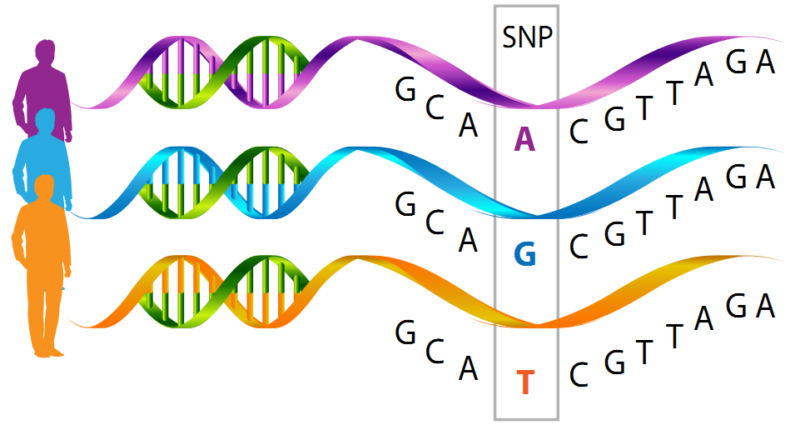Nutrigenomics – The emerging new Science
Nutrigenomics is a branch of nutritional genomics and is the study of the effects of foods and food constituents on gene expression. The emerging science from nutrigenomics allow us to understand how vital nutrients can impact our gene expression. Most importantly, it assists us to achieve optimum nutrition through proper clinical application of this cutting-edge scientific knowledge.
Nutrigenomics is still relatively new in Singapore. However, it is important to educate the masses about it now. Not only a DNA test can reveal crucial information how certain nutrients can turn on / off a particular sets of genes in the body, it can disclose one’s susceptibility to certain conditions or even diseases. Many DNA testings in the realm of Nutrigenomics detect Single Nuclotide Polymorphism (SNPs) in an individual to help evaluates a person’s genetic weakness and strength.
What is Single nucleotide polymorphisms?
So, what exactly is Single nucleotide polymorphisms? They are commonly called SNPs (pronounced “snips”), are the most common type of genetic variation among people within a population. Each SNP represents a difference in a single DNA building block – nucleotide. For example, a SNP may replace the nucleotide cytosine (C) with the nucleotide thymine (T) in a certain stretch of DNA.

Nutrigenomics Singapore
These SNPs occur normally throughout a person’s DNA, upon which natural selection can operate. Most commonly, these variations are found in the DNA between genes. They can act as biological markers, allowing scientists locate genes that are associated with disease. So, when SNPs occur within a gene or in a regulatory region near a gene, they may play a more direct role in disease by impacting the gene’s function.
Some SNPs have proven to be very important in the study of human health. Researchers have found SNPs that may help predict an individual’s response to certain drugs, susceptibility to environmental factors such as toxins, food and risk of developing particular diseases. For example,current evidence supports the concept that gene-environment interactions modulate plasma lipid concentrations and potentially Cardiovascular Disease (CVD) risk.
Cardiovascular Disease
These studies examining gene-diet interactions and lipid metabolism have been highly promising. Several loci (i.e., APOA1, APOA4, and LIPC) are providing proof-of-concept for the potential application of genetics in the context of personalised nutritional recommendations for CVD prevention. This information is exactly what a DNA testing can provide in the field of Nutrigenomics.
Detoxification
Another good example is the process of detoxification. The detoxification process in our body involves two stages: Phase 1 & 2. There are several specific enzymes needed for each of them ( i.e CYP1A1, CYP1BA, CYP2A6). The metabolic products from phase 1 detoxification are usually more toxic. This means they need to be excreted properly in the presence on Phase2 enzymatic activity. Therefore, when genes variation occurs in an unfavourable sequencing, the detoxification processes in the body will be interfered and may lead to the development of various diseases, including cancers.
In conclusion, understanding both the role of diet in the varying expression of a genome and the role of genetics in the varying responses to diet are fundamental to understanding human health. Through Nutrigenomics DNA test, we are able to be more precise in our dietary plans to achieve optimum health.
References:
- Single Nucleotide Polymorphisms that influence lipid metabolism: Interaction With Dietary Factors. Annual Review of Nutrition Vol. 25:341-390 (Volume publication date 11 August 2005)
- The genetics of obesity: FTO leads the way. Trends Genet. 2010 Jun; 26(6): 266–274.
Tags Nutrigenomics

